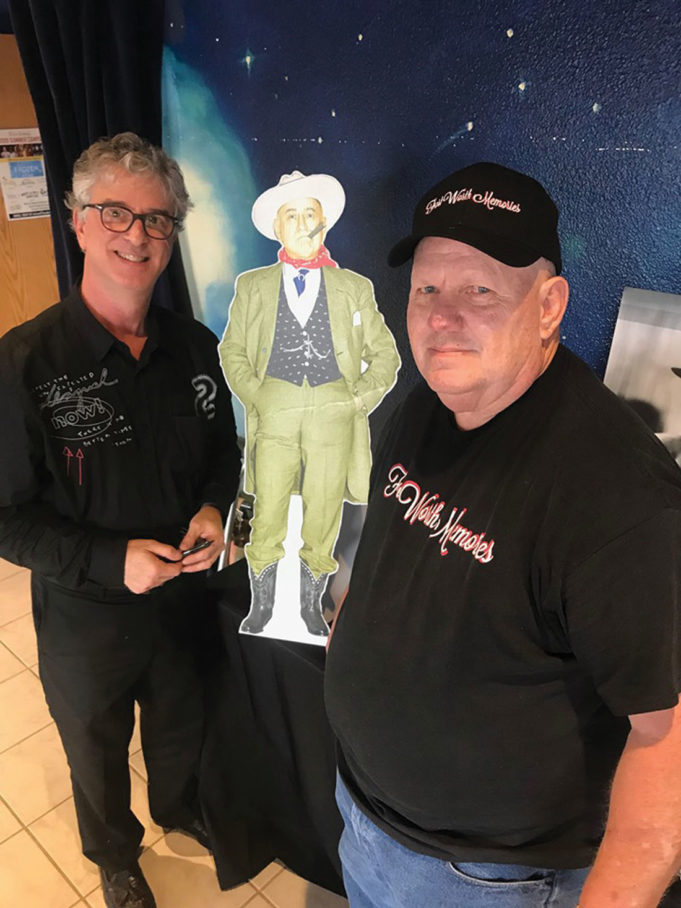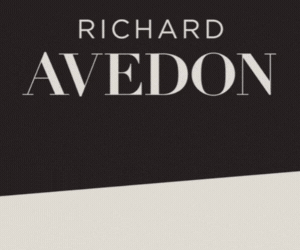The new stage play Amon! The Ultimate Texan was in intermission on a recent Saturday afternoon at the Artisan Center Theater in Hurst, and playwright Dave Lieber was shaking hands and selling books in the lobby. A short, stocky guy wearing weathered jeans, T-shirt, and a gimme cap started a conversation about Amon G. Carter Sr., the topic of Lieber’s play.
“I did not know that,” Lieber said more than once as Larry O’Neal peppered him with minutiae about Carter’s life.
Carter, the former publisher of the Fort Worth Star-Telegram, was the city’s richest and most influential resident during the first half of the 20th century. O’Neal claims to be the world’s most knowledgeable expert on the man. Most people – Lieber among them – agree after hearing O’Neal prattle on awhile.
O’Neal “paid me the ultimate compliment,” Lieber told me afterward. “He said that what he had seen of our new play was accurate. He would know. He is an authority on all matters that pertain to what is now the 13th largest city in the United States. No small thing.”
O’Neal’s expertise on Fort Worth goes only so far. He’s no authority on what the heck to do with a collection of Fort Worth and Carter memorabilia so expansive that it requires multiple warehouses for storage. O’Neal, born in Fort Worth almost 70 years ago, has spent hundreds of thousands of dollars and most of his adult life collecting artifacts, mementos, photographs, historical documents, and anything else related to his beloved hometown. He rotates the items at Fort Worth Memories, his museum at 1633 Rogers Rd., near TCU. The museum sits on the same site as O’Neal’s Classic Auto Detail Shop. A tour of the museum costs $10.
“My museum is the nuts and bolts of Fort Worth, Texas,” he said. “It’s what really happened here. It’s homegrown Fort Worth stuff and needs to have a permanent home where people can come and visit it, and the schools can bring the kids here. We can’t afford to let any more of our history go.”
Advancing age is prompting O’Neal to think about what will happen to his collection once he’s dead.
“I’ve got a lot of one-of-a-kind stuff that you can’t put a price on,” he said.
O’Neal’s collection includes Carter’s last phone book, filled out in his wife’s handwriting with the personal phone numbers of some of the country’s biggest powerbrokers, including presidents and generals. Carter had 85 different keys to the city made during his lifetime and gave them to prominent friends. O’Neal owns 58 of the keys, including the ones Carter presented to presidents Calvin Coolidge and Franklin D. Roosevelt.
O’Neal estimates he owns 20,000 documents related to Fort Worth history and more than 70,000 items in all. He’d like to keep the collection together and displayed in perpetuity but isn’t sure how to make it happen.
In March, several city officials toured the museum, and one asked O’Neal what would happen to his collection after he was gone. O’Neal offered his entire collection to the city in exchange for a couple of promises, he said. First, the city would have to make everything available to the public. Next, O’Neal would curate the collection until his death. Finally, the collection must always be called Fort Worth Memories because O’Neal likes the name.
One of the officials mentioned to O’Neal that the city owns plenty of properties.
“I said, ‘That’s great – where do we go from here?’ ” O’Neal recalled. “That’s as far as that conversation got. I’ve never heard another word.”
Manya Shorr, director of the city’s library system, was one of the city officials on the tour that day. She was surprised recently after I asked what the city was doing in response to O’Neal’s offer to hand over his collection. Shorr said the officials were touring the museum in March as part of a posthumous proclamation honoring the state’s first African-American nurse, the late Mary Keys Gipson of Fort Worth. Shorr recalled O’Neal casually mentioning his interest in talking to city officials about gifting his collection, but no official action was ever taken. “It felt off the cuff and offhand,” she said. “I didn’t realize he was waiting to hear back from us.”
The library’s history and archives department serves as the city’s gatekeeper of historic documents, which are free and open to the public for research purposes. The space is limited in size. “We are busting at the seams here,” Shorr said.
Where would 70,000 items be stored? Who would audit and authenticate it all? How long would it take? How much money would be required? Answering questions such as these requires meetings and discussions that could take months or years, she said.
“Things need to be a little more formal when you are working with a city,” Shorr said. “We would love to look through it and see if there is anything that could complement and augment the collection here at the library.”
Linda Barrett, library manager, said O’Neal’s collection contains many documents that would fit well into the library archives. O’Neal’s collection, however, includes an abundance of artifacts.
“Museums tend to collect individual items, whereas archives collect groups of records,” she said. “There is a distinction between a museum and an archive.”
Shorr suggested O’Neal call her and “let’s start talking and figuring out how to move.”
I relayed the message to O’Neal, who worried at what sounded like someone cherry-picking his collection, taking only pieces that served their purposes. “That ain’t going to work,” he said.
The American Alliance of Museums, established in 1906 as an advocacy group, describes on its website how starting a new museum is a “complex undertaking with serious fiduciary and legal obligations.” O’Neal is learning that firsthand as he seeks a way to sustain the collection after his death. His heirs aren’t interested in Fort Worth history or his collection, he said. O’Neal figures the stuff will be auctioned off after his death unless he makes other plans.
“I’m hoping for anybody’s help as far as ideas,” he said. “At some point in time, if something isn’t done, it won’t be seen by the public. It will be gone.”












